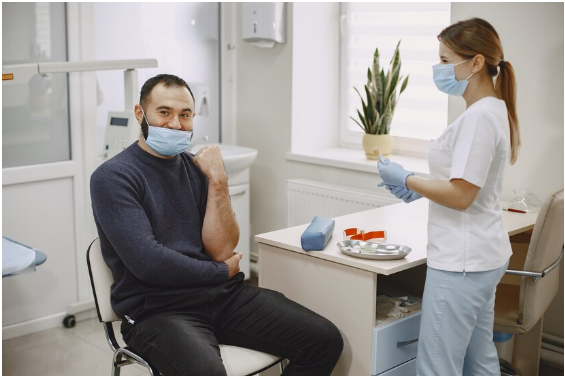
Phlebotomy in London: A Vein of Opportunity
In the bustling healthcare sector of London, an often-overlooked role is rapidly gaining prominence: phlebotomists. These medical professionals are the lifeblood of the diagnostic process, drawing blood for tests, transfusions, donations, and research. With the rise in demand for healthcare services, the phlebotomy field is poised for considerable growth, making it an enticing career option for many. But what exactly does a phlebotomist do, how does one become one, and why is the role so crucial in the context of London’s healthcare landscape?
The Role of a London Phlebotomist
A phlebotomist in London, or anywhere in the world, is a specialised medical technician trained to draw blood from patients for various clinical or medical testing, transfusions, donations, or research. The practice requires precision, empathy, and a thorough understanding of venipuncture techniques. Phlebotomists serve as the bridge between patients and healthcare, often providing comfort to individuals who may be nervous or fearful of the process.
In a bustling metropolis like London, phlebotomists are an integral part of the healthcare system. They work in hospitals, clinics, and laboratories, playing a pivotal role in the accurate diagnosis and treatment of patients. Phlebotomy is not just about drawing blood; it’s about ensuring that the process is safe, sanitary, and as stress-free as possible for patients. So, Learn Phlebotomy in London.
Why Phlebotomy Is a Growing Field in London
The demand for phlebotomists in London is rising for several reasons. First, as the city’s population continues to grow and age, so does the need for medical services. More tests mean more blood needs to be drawn, elevating the importance of a skilled phlebotomy workforce.
Furthermore, London serves as a hub for medical innovation and research. The phlebotomist’s role is essential in this environment, supporting clinical trials and breakthrough studies that require blood samples.
The COVID-19 pandemic has also catalyzed the need for healthcare professionals across the board, including phlebotomists, who are instrumental in administering tests and vaccines. The city’s public health initiatives alone would significantly increase the demand for phlebotomists.
Becoming a Phlebotomist in London
For those intrigued by the prospect of this career path, becoming a phlebotomist in London typically involves the acquisition of specific education and training. Many candidates start with a diploma or certification program that typically lasts several months. These courses teach the essentials of phlebotomy, anatomy and physiology, infection control, proper handling and labelling of specimens, and CPR, among other key topics.
After completing the educational component, aspiring phlebotomists often gain practical experience through internships or on-the-job training. The rich medical environment in London provides ample opportunities for hands-on learning.
Finally, certification through organizations such as the National Phlebotomy Association or The Phlebotomy Association is strongly advised, as it often increases job prospects and earning potential.

The Impact of Skilled Phlebotomists on Patient Care
The work of a skilled phlebotomist goes beyond technical proficiency. It directly affects the patient’s healthcare experience and the quality of care they receive. A gentle hand and the ability to interact compassionately with patients can turn a potentially daunting experience into a positive one.
In a city known for its high standards and acclaimed healthcare institutions, the role of phlebotomists in upholding those standards cannot be overstated. Their contribution to patient care is an integral part of the larger picture of healthcare delivery in London.
Challenges and Opportunities for Phlebotomists in London
The road to becoming a phlebotomist has its challenges, especially in a competitive job market like London. However, with the right skills, attitude, and work ethic, there are numerous opportunities awaiting phlebotomists in the city.
Phlebotomy offers a rewarding career, the chance to work directly with patients, and the satisfaction of knowing that one’s work contributes significantly to the healthcare community. With the right approach, London’s aspiring phlebotomists can look forward to a fulfilling professional journey.
London’s Phlebotomy Industry and Emerging Trends
The phlebotomy industry in London is dynamic, with several trends shaping its trajectory. For example, the integration of technology is streamlining the collection and processing of blood samples, requiring phlebotomists to be savvy with software and automated equipment.
Additionally, there is an increased focus on patient-centred care, which means phlebotomists are now more than just technicians; they are care providers who are crucial in creating a positive patient experience.
The Future of Phlebotomy in London
London’s phlebotomy sector is on an upward trajectory, driven by healthcare advancements and an evolving demographic. The future promises an even more significant role for phlebotomists in delivering quality healthcare across the city.
The importance of their work, combined with the increasing opportunities in the field, makes phlebotomy a promising career path. For those considering a career in healthcare, becoming a phlebotomist could be a smart move, especially in a vibrant and growing city like London.

In Conclusion
Phlebotomy may be one of the lesser-known healthcare professions, but its importance cannot be underestimated. In London, a city renowned for its medical innovation and excellence, phlebotomists stand at the forefront of the diagnostic and treatment process. With the demand for their skills on the rise, the field of phlebotomy represents a vein of opportunity for those looking to make their mark in the healthcare industry.
For those inspired to pursue this path, remember that success as a phlebotomist requires continual learning, adaptability, and a commitment to compassionate patient care. The road may have its challenges, but the rewards—both personal and professional—are well worth the effort.







